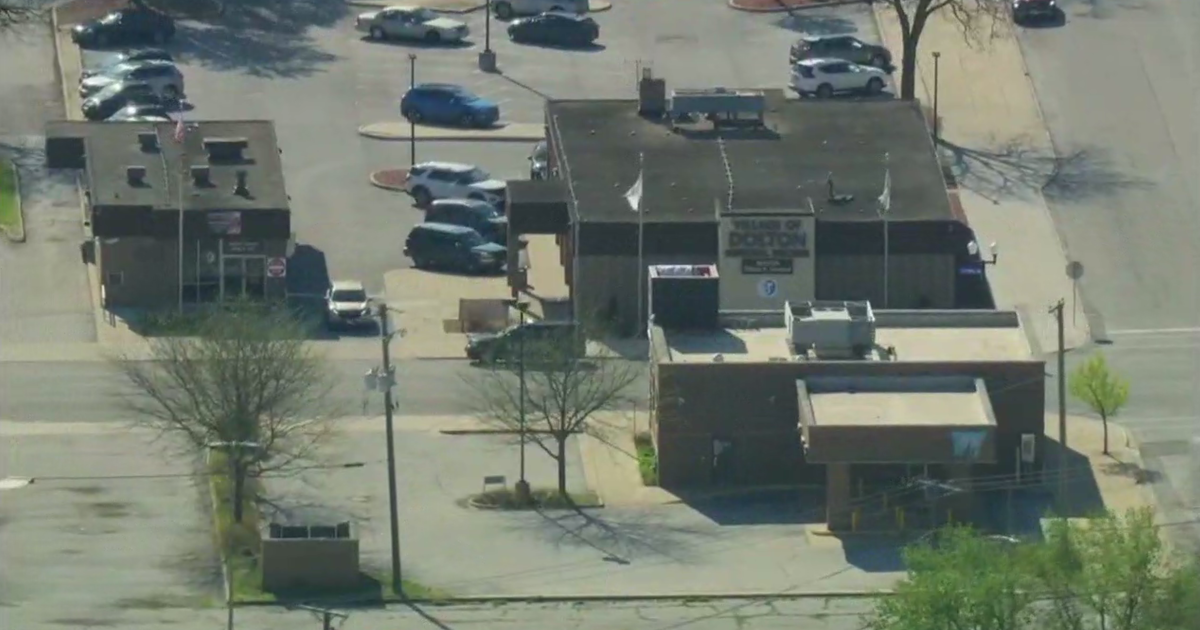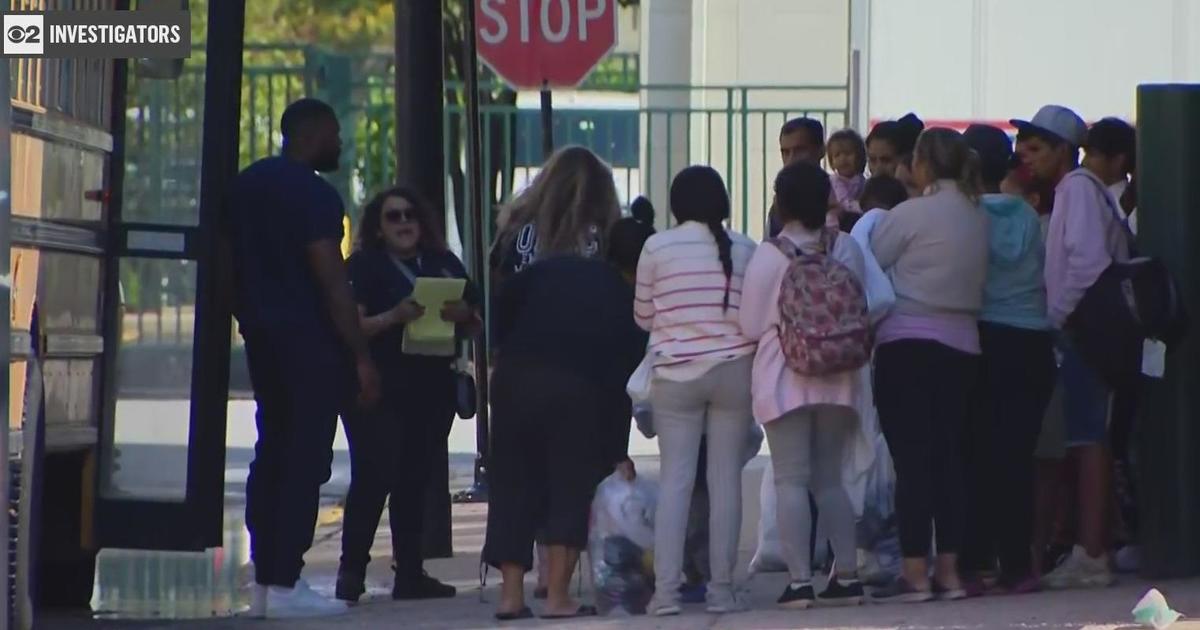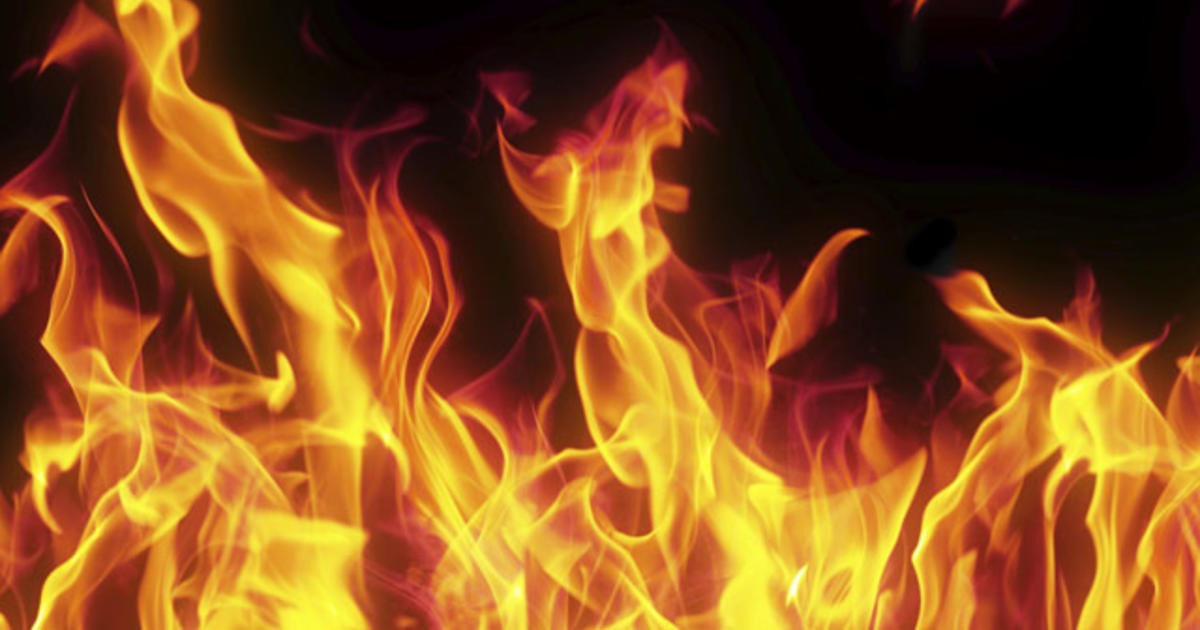City Says Air Quality Tests Show Botched Smokestack Demolition In Little Village Caused 'No Apparent Health Risk'
CHICAGO (CBS) -- The bungled demolition of a power plant smokestack in the Little Village neighborhood more than two weeks ago caused "no apparent health risk" to neighbors, according to air quality tests conducted by the city and the U.S. Environmental Protection Agency.
"Based on the validated results that we are publishing today we have no reason to believe the implosion emitted additional toxic materials into the surrounding community, but the department remains committed to continue ongoing tests of the site to monitor these levels," Chicago Department of Public Health Commissioner Dr. Allison Arwady said in a statement.
On April 11, workers hired by Hilco Redevelopment Partners conducted an implosion of the smokestack at the former Crawford Generating Station near 35th and Kedzie, causing a huge cloud of dust and debris to blanket the surrounding community.
Mayor Lori Lightfoot has said the developer was supposed to use high-powered water cannons to spray down the smokestack to prevent dust from blowing onto nearby homes, but they apparently failed to do so.
Shortly after the botched demolition, the city collected 14 dust samples from the area, to test for toxic pollutants including asbestos, lead, cadmium, selenium, nickel, zinc, chromium, and arsenic. Two days later, the city also collected soil samples to test for asbestos, PCBs, pesticides, polynuclear aromatics, and other pollutants. Additional air sampling on April 14 checked for organic compounds and dust particles. The tests were conducted by the Chicago Department of Public Health and the U.S. EPA, and were validated by "a non-governmental agency," according to the mayor's office.
Monday morning, city officials said those tests revealed "no particulate levels considered to be unsafe for human health, per US EPA standards."
"Based on the nature of the former Crawford Station site, testing for lead and arsenic was made a priority, and no asbestos was detected in the samples collected from the area where the dust cloud settled. The samples were also tested for inorganic materials and metals, and while small concentrations of lead and barium were found in the dust, health experts determined that the levels found do not present an apparent health risk to residents," the mayor's office said in a statement.
The city said air tests did reveal low levels of volatile organic compounds, and said officials are "reviewing these results with experts to better understand potential sources and impacts while comparing them to background levels found in the air, both in Little Village and across the city."
Additional tests will be conducted in the coming weeks to continue tracking any changes in air quality, according to the mayor's office.
"We are committed to protecting the health and wellness of all Chicagoans, and it was imperative that my team conduct a robust investigation into the samples they were able to collect onsite to better understand the health implications of this event," Arwady said.
According to the city, soil tests revealed levels of arsenic, barium, lead, and mercury "consistent with expectations of the site, as well as with background levels found in soil throughout the city."
"Health professionals believe these levels do not currently pose a material health risk to the surrounding community. These substances are part of the Illinois Environmental Protection Agency's (IEPA) overall cleanup oversight through the IEPA's Site Remediation Program which began in 2018 and will continue until future buildings, roads and grassy areas are installed," the mayor's office said.
The city has hit Hilco with 16 violations, totaling $68,000 in fines for the botched demolition, and has issued a stop work order at the site, barring any further demolition work while cleanup efforts are underway. Lightfoot has called what happened "simply unacceptable."
"While we are taking vigorous action to hold the developer and its subcontractors accountable and protect the health and safety of our local residents, we are also laying the groundwork to ensure failures like this never happen again," Lightfoot said last week.
Lightfoot has said Hilco is paying to clean up the mess from the smokestack demolition, and will assess any damage to the neighborhood.
However, activists have criticized the mayor for allowing the demolition during a respiratory pandemic in the first place.
"This was done without transparency. A lot of people didn't know it was going to happen, and they're upset because, how could somebody entertain this when we have this pandemic right now of COVID-19?" activist Raul Montes Jr. said on Sunday. "It's an outrage to this community."
Community groups, along with some aldermen, county commissioners, and state lawmakers have demanded the mayor force Hilco out of Little Village altogether.
Ald. Byron Sigcho-Lopez (25th) has called for an investigation by the city's Office of Inspector General to find out why the permit was granted during the time of COVID-19.



